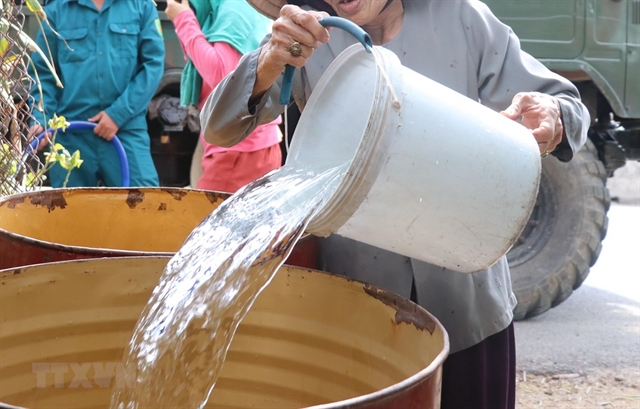 Society
Society

Severe saline intrusion has caused serious shortage of fresh water in Mekong Delta province of Trà Vinh since Mid-February.

|
| Nearly 10,000 households in Trà Vinh Province are seriously lacking clean water due to saline intrusion. — VNA/VNS Photo |
TRÀ VINH — A shortage of fresh water and severe saline intrusion has seriously affected the lives of people in the Mekong Delta province of Trà Vinh for half of the year.
According to the provincial Clean Water and Environmental Sanitation Centre, nearly 10,000 households have suffered from lack of fresh water, especially in Châu Thành and Càng Long districts.
Since mid-February, more than 5,220 households living in ten communes of Châu Thành District have been forced to use surface water from canals, ditches or drilled wells for everyday living.
In the dry season, the water is salted while the underground water is contaminated with alum, causing a serious shortage of fresh water, local agriculture and rural development office said.
To cope, many households have been storing rainwater.
The authorities in Châu Thành District said the local fresh water supply system only met 50 per cent of demand and the rest were forced to drill wells.
Bùi Văn Mừng, director of provincial Rural Water Supply and Sanitation Centre, said some water supply stations built were old and degraded and their initial designed capacity did not meet the needs due to population growth.
About 6 per cent of rural households cannot reach fresh water because fresh supply water system cannot build in some remote areas, he said.
Proposals have been put to the province to build a water reservoir at four water supply stations using surface water to ensure sufficient fresh water supply in six months of dry season.
It also suggested building more pipeline systems in areas affected by saline intrusion and provide plastic tanks for about 2,000 poor households to store clean water.
The project is estimated to cost VNĐ18 billion (roughly US$766,000). — VNS




